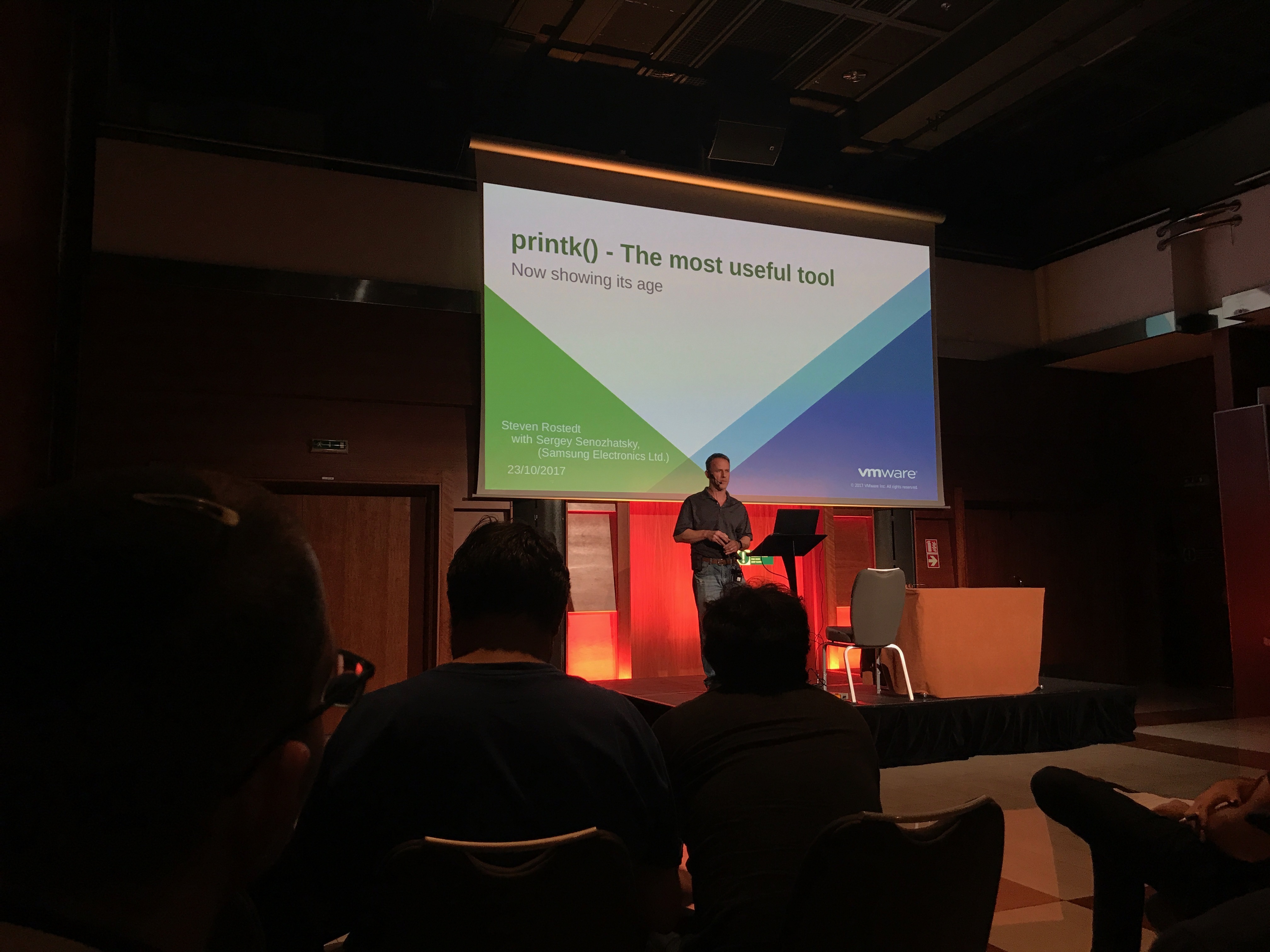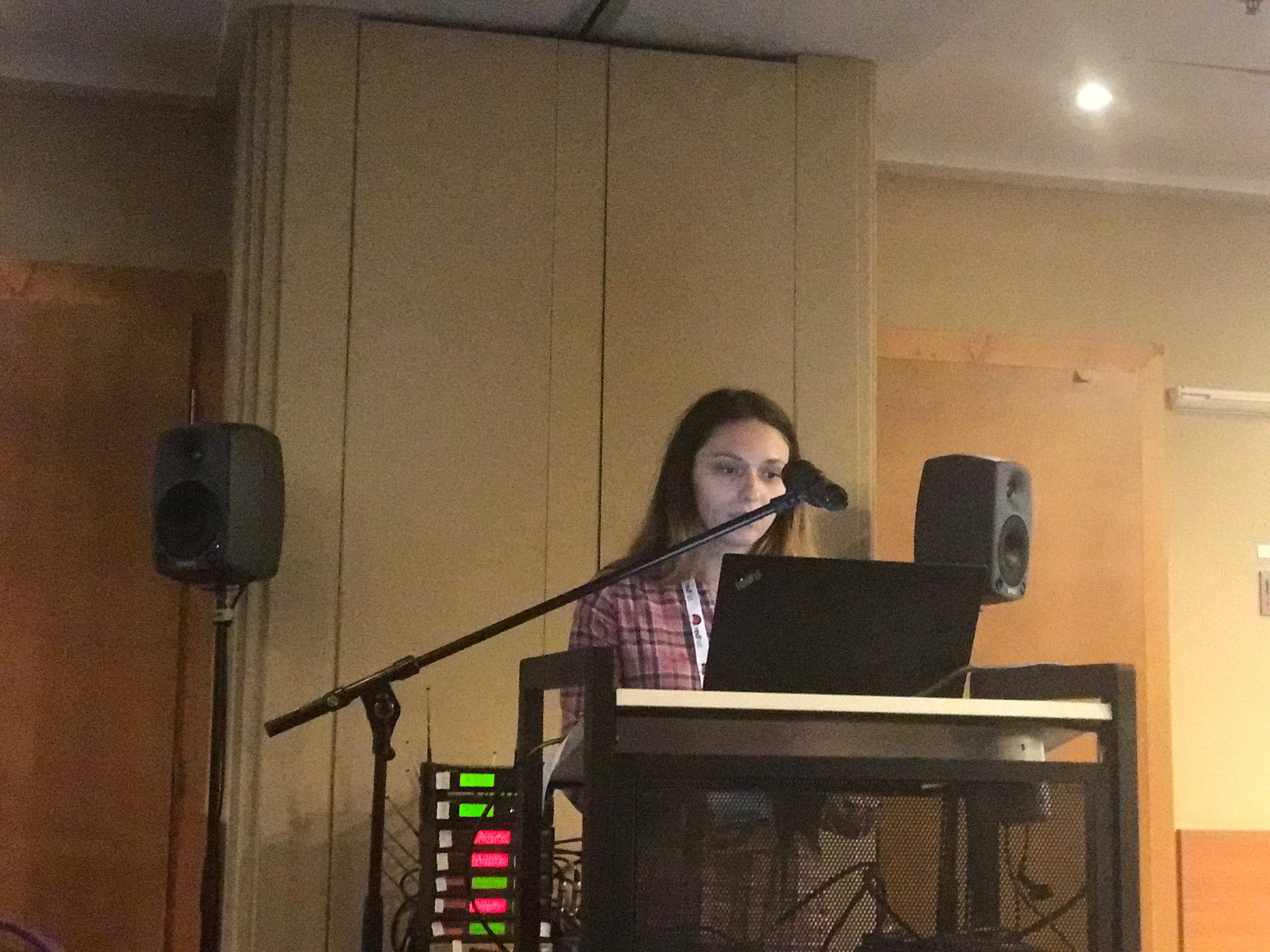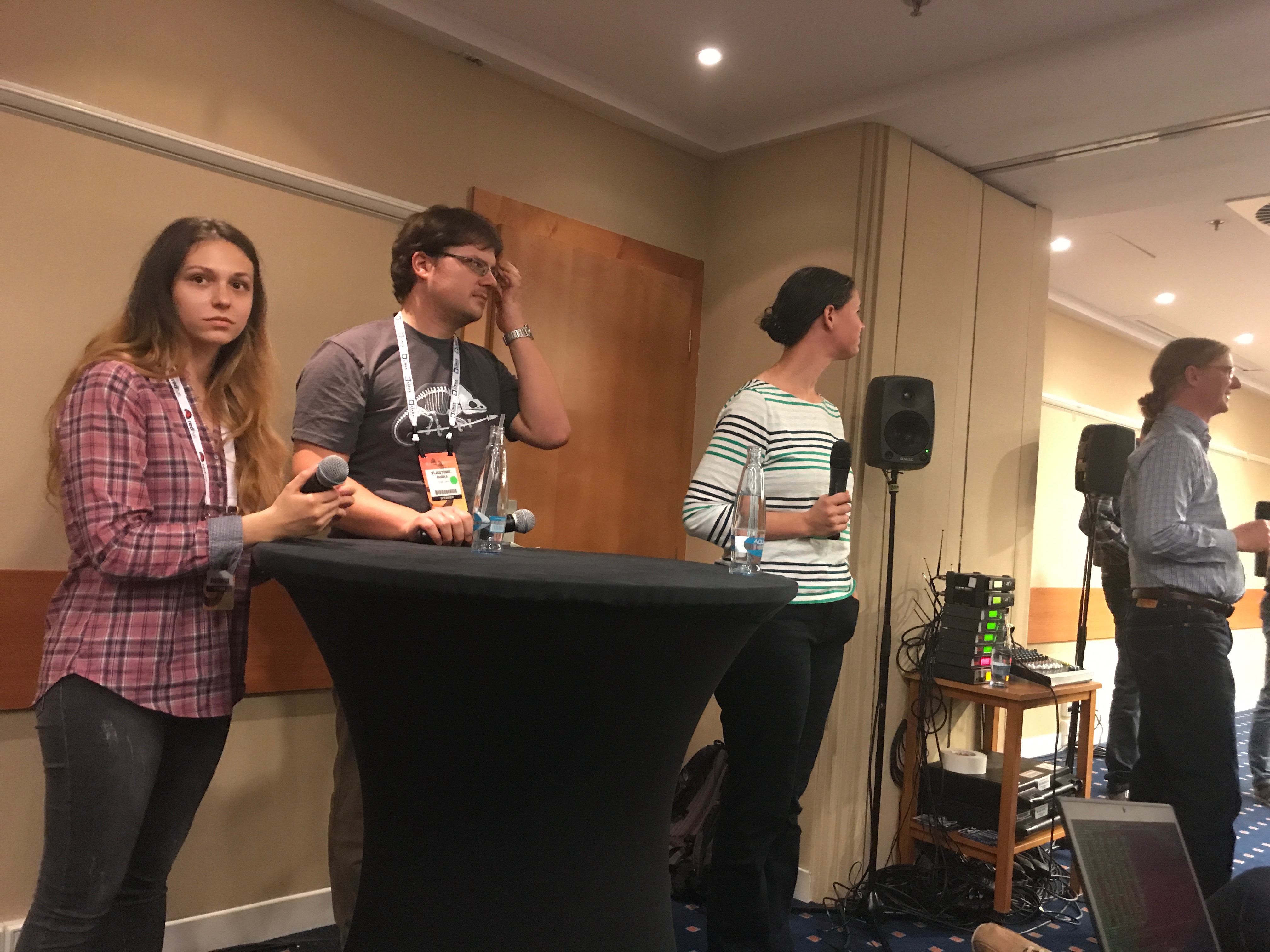Open Source Summit Europe
The Open Source Summit Europe is, sadly, over. In this post, I will show you a glimpse of the conference. It’s been an intense week, I’ve met a lot of enthusiastic people, I’ve attended great talks, I caught up with the latest tools and projects and I feel I am part of a remarkable community of smart and passionate people. It’s like having friends all over the world, everyone with different backgrounds, different stories, but bonded by the same love for technology.
In the first day of the conference I was a little nervous. I didn’t know many people, it was the first event of this kind I was attending, so everything seemed a little overwhelming. Luckily, on that day, I had lunch with other women attending the conference thanks to the “Women in Open Source Lunch” event, sponsored by Adobe. I got to know other people, share stories, take pictures, make friends. Great initiative! As a suggestion, I believe we should also have a similar networking event for newcomers, so they can mingle with each other and make friends. After the lunch, I attended some talks and no longer felt alone, because I’d see a familiar face everywhere.
One of the talks I’ve attended was called “Fast and Precise Retrieval of Forward and Back Porting Information for Linux Device Drivers” by Julia Lawall. Julia updated us on tools that help collect information needed to port device drivers for newer or older kernel versions. I’ve learned about “Prequel”, a tool that queries git commit histories and provides a list of most relevant commits, that can help you solve your porting issue. The results are preceded with a percentage value that represents how likely it is that the respective result is relevant for your situation.
Another talk I’ve attended is “printk() – The Most Useful Tool is Now Showing its Age”. It turns out that providing a very good, efficient implementation of a tool like printk() is more complicated than it seems.
“Bash the Kernel Maintainers” - was fun to attend. It aimed to improve the communication between maintainers and developers and to find solutions for different issues encountered by people who want to contribute to Linux Kernel. Luckily for me, the maintainer of Industrial Input/Output Subsystem, for which I’ve written my driver, is very responsive and kind. I had no problems reaching him, or getting feedback from him.
Having the chance to present the work I did, over the summer, meant a lot for me.
I’ve presented all the steps I’ve taken in order to build up a driver for the air quality sensor CCS811. I also talked about my experience as an Outreachy Intern.
I also participated in the Kernel Developer Panel moderated by Jonathan Corbet.
I was very excited to be there. I was also very nervous. The room was full, the other speakers were, all, more experienced than me, so I felt a little pressure, given I was the newcomer. Fortunately, Jonathan was a great moderator and thanks to him I got a little more confident.

I believe that attending events like this one motivates you even more to keep contributing to open source. When I was sending the patches for my driver I was very enthusiastic to contribute to Linux Kernel and I was focusing on improving my programming skills to be able to make even greater contributions and build useful tools. But I wanted to get to know the people I was communicating with via email and I wanted to interact with them face-to-face. Now that I was able to do just that, I feel part of the family and can’t wait to find more open source challenges.
I’ll leave you now with this beautiful picture of Prague, and hopefully, we’ll meet again in Edinburgh, next year!



